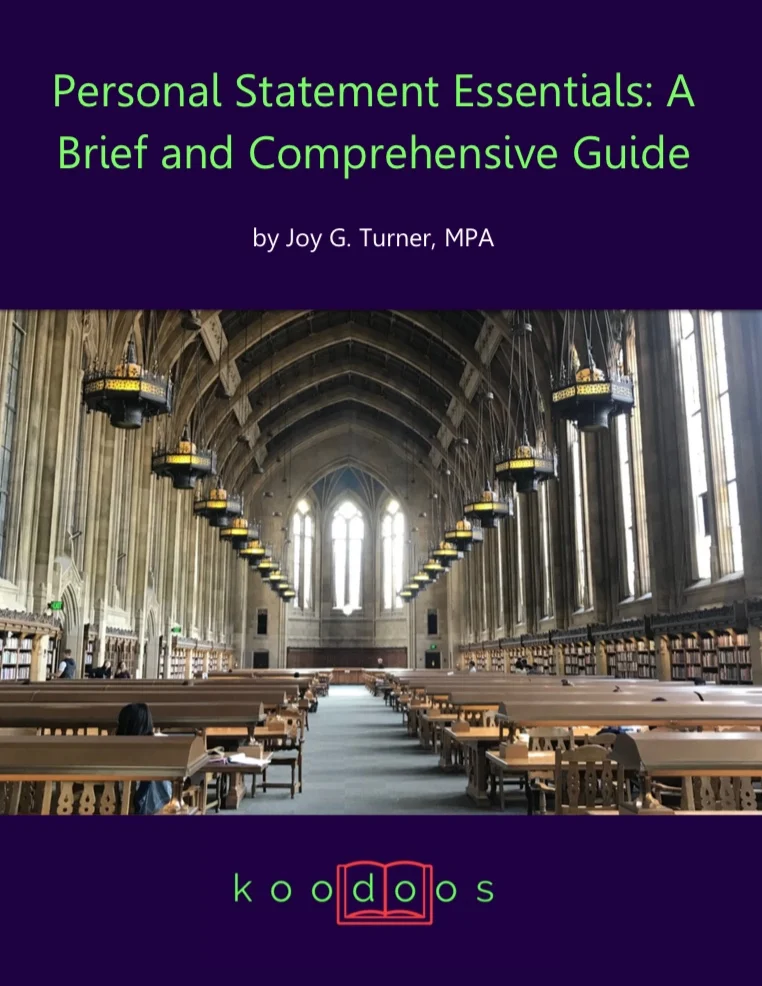The style you choose to use for your personal statement offers important clues about you and your character. Much like your high school English class essays, the style of your personal statement can reveal your ability to write, your attention to detail, and how you choose to communicate.
Read MoreThe statement of purpose, or what I like to call the cover letter essay because of its similar structure, is generally used for graduate school applications and focuses much more on describing the skills, experiences and education that has prepared you for the program you’re applying to than a personal statement would. Its main purpose concentrates less on telling your story and more on communicating the qualities that make you a perfect candidate. Ideally, the statement of purpose should convey your genuine interest in and enthusiasm for the program of study you’re pursuing, and what you have done in the past to nurture that passion.
Here are 4 steps for writing a statement of purpose:
Read MoreA brief and comprehensive guide with tips focused on helping you write memorable college admissions essays and personal statements for your undergraduate and graduate school applications.
Read MoreA personal statement, also known as a statement of purpose, is a priority tool used by college admissions teams as a part of the college application process. The personal statement is particularly useful as it essentially serves as a self-manifested demonstration of your unique qualifications. The personal statement also provides a glimpse into your writing ability, creativity, and career goals. Admissions committees look to personal statements to gain insight about you and understand your motivations as they relate to school and career choices.
Read MoreGetting starting on your graduate school statement of purpose can be stressful and perplexing as the statement of purpose is unlike any other writing assignments you regularly complete. I would even venture to say it’s worlds apart from the personal statement you wrote for undergrad. While a personal statement should intentionally focus on the writer’s personal narrative (i.e. on who you are and how you got there), a graduate school statement of purpose, on the other hand, should emphasize the writer’s academic interests, skills, and career goals. But of course, your grad school statement shouldn’t be devoid of personality either.
Here are four questions to consider before you start writing your graduate school statement of purpose.
Read MoreI'll be sitting in on a class at the University of Washington in a couple days and it'll be my first time ever sitting in on a class. Are there certain rules or etiquette I should follow when I'm there?
Read MoreThere are some clichés in personal statements that seem to happen over and over again. While having one or two clichés won’t prevent you from getting into a good college, it is nice to avoid them as don’t add depth to your writing, nor do they particularly work to help your application stand out. There are also a number of common occurrences I’ve seen when reading personal statements that are just annoying and don’t add any value to the application.
To help you out, here’s a short list of clichés and topics/ideas to avoid when writing your personal statement:
Read MoreWhen you’re writing a narrative or telling a story in your personal statement, using sensory details is one of the most effective ways to captivate the reader which makes your essay more likely to stand out. Sensory details help the reader figuratively see, hear, feel, smell, and taste your words.
Read MoreAm I first generation?
My mom didn’t go to college, but my dad did and graduated with an Associate Degree. Both of my siblings have graduated from college with engineering degrees. Does this mean I’m not first-generation?
Read MoreThe revision process is one of the most critical steps in writing effective personal statements and essays. Still, you make ask WHY EXACTLY is revising my essay important? Three main reasons:
To develop better content
To correct formatting and grammatical errors
To become a better writer over time
So, how should you go about revising your essay. Here are some tips:
Read MoreBefore you start writing your college admissions essay, it’s important to understand the essay prompt. As simple as it seems, this can be difficult if you can’t figure out exactly what the prompt is asking. Here are some points to consider after reading the prompt and before you begin writing:
Read MoreA couple weeks ago, I put together this quick list of resources about writing personal statements and thought it’d be helpful to share on my blog. Enjoy.
Read MoreIt’s important to consider grammar, style, and organization when writing your application essays because bad writing is the absolute first thing any admissions committee member notices when reading admissions essays. Most college applicants, however, don’t have issues with the grammar and so it rarely has a major impact on a candidate’s score.
With this in mind, I tell writers to instead focus on the content, clarity, and composition of their college application essays by examining the following questions
Read MoreIn honor of the start of college admissions season, I’m offering some tips I learned during my time as an admissions application reader and writing consultant tailored to help veterans write college application essays that actually stand out.
Read More














